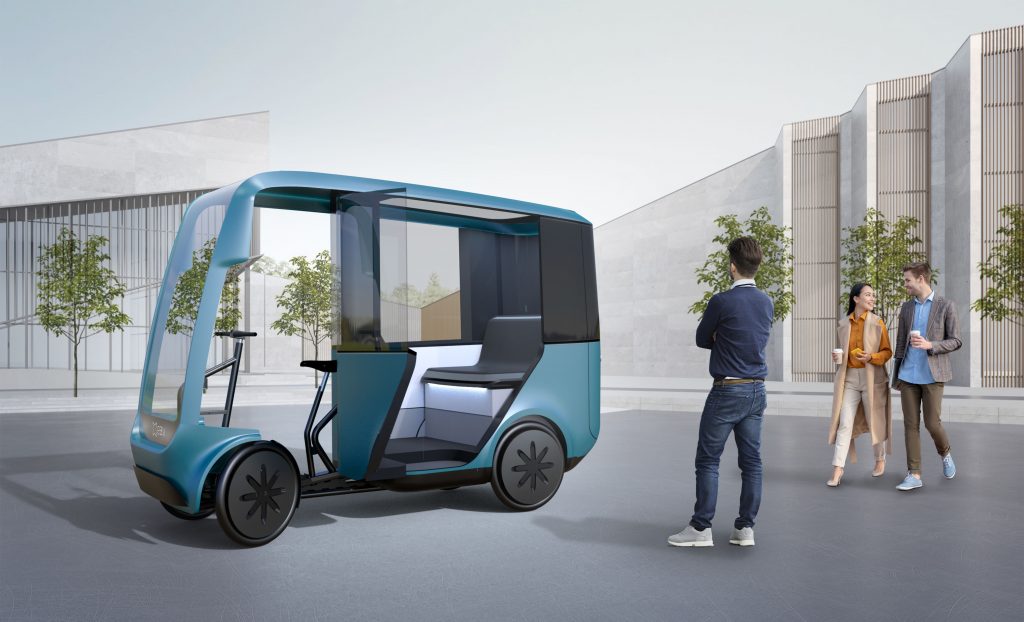Electric Assisted Vehicles (EAV) has revealed the latest design in its range of ultra-lightweight, zero emissions, urban commercial vehicles.
The Oxfordshire-based micro-mobility manufacturer has developed the EAV Taxi, which is a development of the recently launched ‘EAV2cubed’ eCargo vehicle that has recently been tested by ASDA’s retail delivery team in hard-to-reach urban areas such as pedestrianised areas and low emission zones.
This new vehicle could revolutionise the Taxi industry as there are currently 375,000 Taxis and Private Hire Vehicles in the UK with around 200,000 individual taxi journeys in London alone every day. The data shows that 65% of all journeys are single occupancy and are usually between 1 and 5 miles. EAV believes it has created the perfect product for these short-distance urban rides, according to founder and CEO, Adam Barmby.
“The main focus for EAV is to continue demonstrating that weight is the enemy of efficiency and therefore of energy conservation,” he said. “Electric cars, vans and taxis are actually hugely inefficient in their energy usage. We looked closely at both taxis and PHVs in urban environments and immediately saw we could be more efficient, cleaner, healthier and just as comfortable at a much lower cost.”
The EAV Taxi, provisionally named the ‘EAVGo!’, has been designed to carry up to two passengers in a new rear compartment, which has full suspension and lightweight side doors. The ultra-lightweight vehicle will also be equipped with a video screen for journey or location information and cabin heating or cooling to create a comfortable ambient temperature. Also, a luggage compartment under the seats is available with access either from the rear or from the side and it can comfortably accept a good-sized suitcase.
The success of the company’s product is all about its superlight weight, according to Nigel Gordon-Stewart, Executive Chairman at EAV.
“We’re 90% lighter than any hybrid or electric car and, if we just replaced one hybrid Uber with an EAV Taxi, we would save about 9.2 metric tons of Carbon Dioxide emissions in one year alone,” he said. “Our energy usage is a fraction of an electric taxi and we don’t need an infrastructure to charge our batteries, just a normal plug socket.”
EAV plans to produce the first prototype EAV Taxi in November 2020 with production EAV Taxis deliveries taking place in the Spring 2021.
